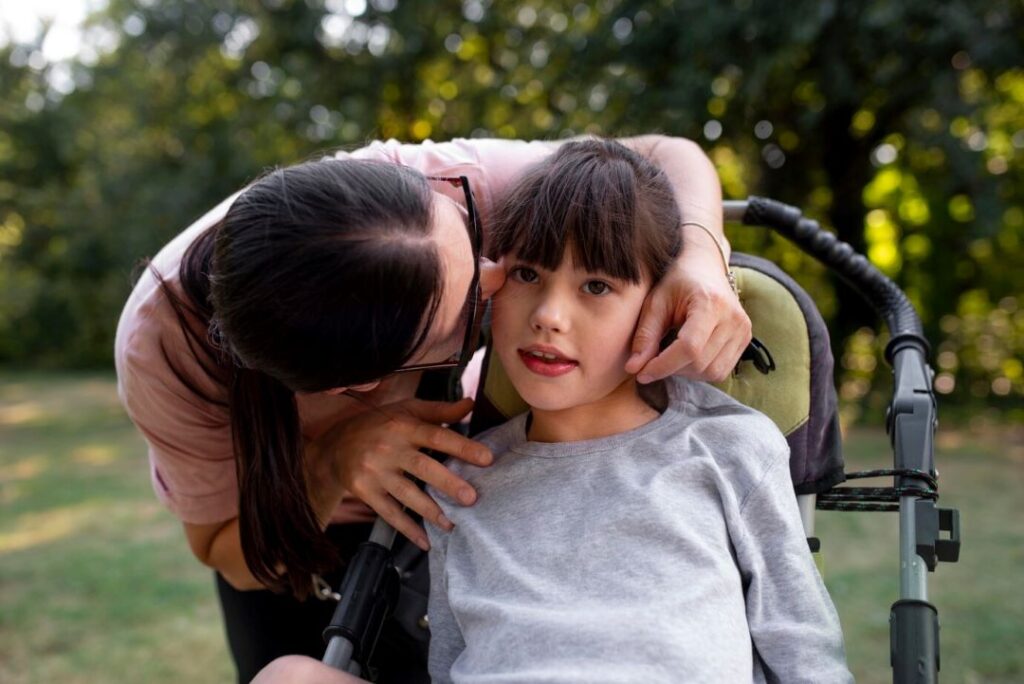For many parents of children with special needs, the level of knowledge required in raising their child is not only higher, but so are the demands. Between learning about their child’s specific disability, to all the doctors’ appointments and extra care required, it can be difficult to even know where to begin.
Self-Reflection to Eliminate Prejudice
As we often hear however, one of the best places to start is with ourselves. Self-reflection is both the hardest and easiest thing for a person to do here. But making sure to be inclusive and embrace your child free of prejudice is key to their success and yours. Make sure you do your research and try your best to expel any preconceived notions that you may have towards your child’s disability. Ensuring that you are your child’s safe space will help them thrive, and will also help you understand their needs better.
Listen to Your Child’s Needs
This then extends to listening to what your child needs in terms of their care. Yes, it is important to research your child’s disability beyond the medical experts, there are a lot of fantastic books and online resources available as well. However, how your child experiences these different tips and methodologies is very individual.
Check in with your child every so often to make sure that the support system that they have set up right now is operating effectively for them. If your child is telling you that something isn’t working, listen to them. Insisting on them continuing to see a care professional that they don’t like, or using an accommodation aid that isn’t working for them, will only prove to isolate your child from you.
Clear, Open Communication
Like all relationships, parenting a child with special needs requires clear and open communication. For many, though not all children with disabilities, it can be hard to pick up on social cues or understand subtleties in speech. Clearly communicating about their care with them so they understand what is going on is important. This also includes talking about any plans involving your child in a way that they will fully understand, or explaining situations that they may have found themselves in in a clear way free of judgment.
Clear communication also not only means between you and your child, but also between yourself and any other guardian or caregiver your child may have. Consistency is key and so make sure that everyone is on the same page regarding your child’s care.
Take Care of Yourself Too
Keep in mind that this also means communicating if you yourself are struggling. Caregiver burnout is a real thing and happens to many if not most parents raising a child with special needs. According to The Cleveland Clinic, “Caregiver burnout is a state of physical, emotional and mental exhaustion that happens while you’re taking care of someone else. Stressed caregivers may experience fatigue, anxiety and depression.” You have so much going on, it can be hard to also think about taking care of yourself. But, reaching out when you need help is important in ensuring that you can be at your best for your child. This is also why building a community of support around you is so important. You can get the breaks that you need too.
Use Available Resources
Finally, there are many aids and resources available for children with special needs, take advantage of them! Raising a child with special needs is hard. Even though it may often feel like it, you are not an island and so having people around you to help will ensure that your child thrives, in addition to your child not relying solely on you. Building a community is important to prevent feelings of isolation for both you and your child. Allow yourself to ask for help when you need it. From school programs to recreational activities to support groups for both kids and parents, keep yourself and your child involved in your community.
Lauren Schwartz | Staff Writer








